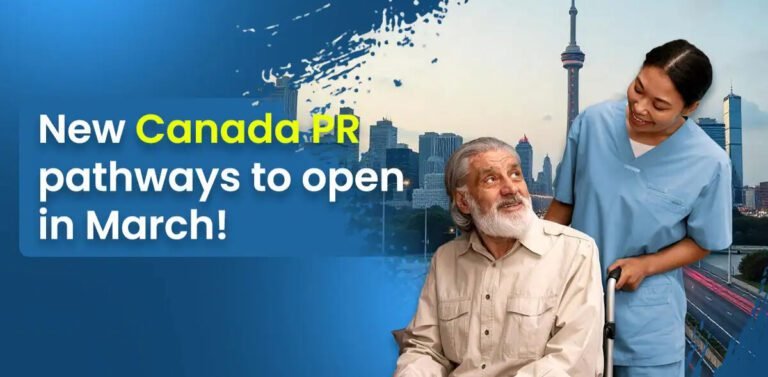Federal leaders debate more immigration powers for Quebec
The six leaders of Canada’s main political parties squared off on immigration to Quebec and the influx of thousands of refugees at its border with the United States in their last debate before the October 21 federal election Thursday night.
All leaders were asked during the French-language debate where they stand on giving Quebec more powers over immigration than it already has under its unique arrangement with Canada’s federal government.
Unlike other Canadian provinces, Quebec has the power to select all Economic Class immigrants to the province and set immigration levels to the province.
The province’s Coalition Avenir Québec (CAQ) government led by Premier François Legault came to power in October 2018 on a platform of temporarily reducing the number of immigrants admitted to Quebec and testing immigrants on their values and abilities in French. The CAQ said these measures were necessary in order to ensure immigrants are better integrated into Quebec society.
Legault has since pushed Canada’s federal government to also give Quebec greater control over Family and Refugee class admissions to the province.
All six leaders said they are open to speaking with Legault, but not all were willing to commit to greater autonomy for Quebec over immigration.
The CAQ leader has kept to the sidelines of the current federal election campaign but has made clear his hope that each party will agree to his demands on immigration.
Prime Minister Justin Trudeau said his Liberal government has worked on granting Quebec more control over immigration since coming to power in 2015 and indicated he was in favour of giving Quebec additional powers. Trudeau acknowledged Quebec’s immigration rights and said they are necessary for protecting the province’s unique French identity and language.
He added that he was comfortable with Quebec introducing a values test for the immigrants, a position he had not voiced until that point. He later clarified that such a test would only apply to selection by Quebec but not Canadian citizenship.
Trudeau’s chief rival, Conservative Party Andrew Scheer, said he was also prepared to work with Legault to give Quebec more autonomy on immigration.
Asked about Quebec’s immigration levels, Scheer said he was more preoccupied with the labour shortage that Quebec employers are facing. Business groups in the province have been critical of the CAQ’s move to reduce immigration to the province at a time when employers are short workers, especially in the province’s regions.
“I’ve toured Quebec extensively and everywhere I went I heard the same thing, and that’s the shortage of labour,” he said.
Scheer’s commitment to working with Legault was questioned by Maxime Bernier, leader of the new far-right People’s Party of Canada, which is competing with the Conservatives for votes in Quebec.
Bernier claimed he was the only leader who was fully prepared to accede to Legault’s demands on immigration, which echo the PPC’s pledge to reduce immigration in order to Canada to ensure they are integrated and promote economic immigrants over refugees.
“Mr Scheer wants more and more immigrants,” Bernier said. “Mr Scheer does not agree with Mr Legault, who wants to have interviews with each immigrant to ensure they take a values test.”
Asylum seekers
Bernier was also critical of Scheer’s plan for stopping the surge of refugee claimants at an unauthorized border crossing along the Quebec – U.S. border called Roxham Road, where thousands of mostly non-Americans have entered Canada and claim asylum.
Canada’s Safe Third Party Agreement (STCA) with the United States limits who can claim asylum at official land border crossings between the two countries, but doesn’t extend to unofficial points of entry like Roxham Road.
Scheer has proposed extending the STCA so it covers both official and unofficial entry points into Canada. Doing so, however, would involve renegotiating the agreement with the United States, which many believe will not agree to change it.
Trudeau was also criticized for his government’s approach to stemming the flow of asylum claimants at Roxham Road.
Green Party of Canada leader Elizabeth May criticized the Trudeau government move to bury legislation in a nearly 400-page omnibus budget bill that removed the right to claim asylum in Canada if someone had already filed a claim in the United States.
“You hid a law in an omnibus budget — something you said you would never do — that violates the rights of refugees, that cancelled the human rights of people who are seeking a safe life in Canada,” she said.
Trudeau defended the legislation, which was widely condemned by human rights and refugee rights advocates, saying Canadians want an immigration system that is “strong and fair and applies to everyone.”
“We’re following all the norms, and we’re leading internationally to protect human rights,” Trudeau said.
New Democratic Party leader Jagmeet Singh said he would suspend the Safe Third Country Agreement if elected and suggested that Trudeau didn’t have the courage to stand up to U.S. President Donald Trump and do the same.
Trudeau said maintaining good relations with the United States is critical and doing so allowed Canada to successfully renegotiate the North American Free Trade Agreement with the U.S. despite Trump’s protectionist tendencies.
Trudeau agreed that the flow of asylum seekers at Roxham Road was “a problem,” but said it was important to bear in mind the fact 65 million people around the world have been displaced and are seeking safety.
“We recognize that we have a responsibility to pass these individuals through our system while ensuring its integrity, and that’s what we’re doing.”
“There’s no free pass at the border,” he added. “Everyone coming through the border, either by regular or irregular means, goes through security checks, through all the necessary steps in our immigration system.”







